|
Have a safe day!
Friday, March 13
3:30 p.m.
Director's Coffee Break - WH2XO
THERE WILL BE NO JOINT EXPERIMENTAL-THEORETICAL PHYSICS SEMINAR THIS WEEK
8 p.m.
Fermilab Lecture Series - Auditorium
Speaker: Mina Bissell, Berkeley National Laboratory
Title: New Understandings of Cancer
Tickets: $7
Monday, March 16
3:30 p.m.
Director's Coffee Break - WH2XO
4 p.m.
All Experimenters' Meeting - Curia II
Visit the new labwide calendar to view additional events at Fermilab
|
|
Friday, March 13
- Breakfast: chilaquile
- Breakfast: chorizo and egg burrito
- Big fish sandwich
- Roasted salmon caponata
- Barbecue grilled chicken
- Baked ham and cheese ciabatta
- Pork carnitas soft taco
- Leek and potato soup
- Texas-style chili
- Assorted pizza by the slice
Wilson Hall Cafe menu
|
|
Friday, March 13
Dinner
Closed
Wednesday, March 18
Lunch
- Seafood cioppino
- Salad with herb vinaigrette
- Lemon blueberry cake
Chez Leon menu
Call x3524 to make your reservation.
|
|
New spokespersons named for experiment at Long-
Baseline Neutrino Facility
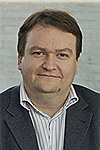 |
|
André Rubbia
|
|
|
|
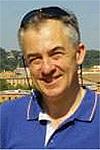 |
|
Mark Thomson
|
|
André Rubbia, professor of physics at ETH Zurich, and Mark Thomson, professor of physics at University of Cambridge, have been elected as co-spokespersons of the experiment at the planned Long-Baseline Neutrino Facility.
Rubbia has held a professorship at ETH Zurich since 1998. He has served as visiting professor at KEK in Japan and has also worked as a research physicist at CERN. His extensive research in neutrino physics includes work on ICARUS and OPERA in Italy and T2K in Japan, as well as leadership of the European LAGUNA-LBNO projects. Rubbia has served as spokesperson of the CERN WA105 experiment, chair of the NIKHEF Scientific Advisory Committee and member of the Fermilab Physics Advisory Committee, among other leadership roles.
Thomson, professor of experimental particle physics at the University of Cambridge since 2008, has made leading contributions in neutrino physics and electroweak physics at electron-positron colliders. He has conducted research at MicroBooNE and MINOS
at Fermilab and at the OPAL experiment at LEP. He is one of the pioneers of particle flow calorimetry for future collider experiments. He is the UK principal investigator on LBNF and has played numerous leading roles within UK particle physics peer review and advisory panels.
|
Mise en place
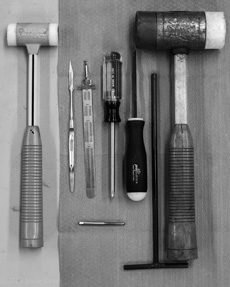 |
| Members of the Technical Division use these tools in Industrial Building 2 for radio-frequency tuner construction. Photo: Steve Krave, TD |
|
Updates to FermiWorks
The FermiWorks human capital management system will be updated to Workday version 24. The update will occur from Friday, March 13, at midnight until Saturday, March 14, at 5 p.m. CDT. FermiWorks will be unavailable during this time.
Following the update, you will likely notice two visible changes. First, the menu and inbox have moved (click on your name on the right side of the screen to access them). Second, the org chart looks different, but the functionality remains unchanged.
It is recommended that after the update, you log in to FermiWorks, check your inbox for any actions required and ensure you have acknowledged the goal setting discussion with your employee or manager.
Read more about what is changing, helpful tips and suggestions on the FermiWorks website.
|
Indian Holi celebration - March 14 in Kuhn Barn
The Fermilab Student and Postdoc Association and the Fermilab Indian Society will host an Indian Holi celebration on Saturday, March 14, from noon-5 p.m. in Kuhn Barn.
Reserve your spot to join the celebration and enjoy Indian food, beverages, music and games.
|
In memoriam: Phyllis Hook
Fermilab retiree Phyllis Hook passed away at the age of 79 on Saturday, Feb. 21, at Murray-Calloway County Hospital in Kentucky. She served as an administrative assistant for Fermilab, retiring in 1995.
Read her obituary.
|
Nine pint-sized galaxies found orbiting Milky Way
From CBS News, March 10, 2015
Scientists have identified nine celestial objects they believe could be dwarf satellite galaxies orbiting the Milky Way. This is the most found at one time, and the first new ones spotted in a decade.
The team of researchers in the United States and the United Kingdom believe the galaxies could hold the key to understanding dark matter and shed light on how larger galaxies — which are collections of gas, dust and billions of stars held together by gravity — are formed.
Read more
|
Revved-up CERN collider aims to shed light on dark cosmos
From Reuters, March 12, 2015
(Reuters) - Scientists at the CERN physics research center said on Thursday the mystery dark matter that makes up 96 percent of the stuff of the universe will be a prime target for their souped-up Large Hadron Collider (LHC) in the coming years.
Read more
|
|
I remember when ...
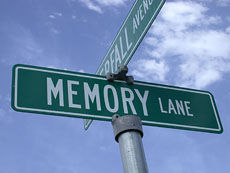 |
| As time passes, we remember the glory days of yesterday, like the time when we found the Higgs boson. Nowadays, some scientists take the existence of the Higgs boson as a given and have moved on, using it as a way to find something new. |
Readers of this column almost certainly remember the announcement of the discovery of the Higgs boson on July 4, 2012. It was a heady time, as it is rare that one confirms the final missing piece of a wildly successful theory. For some, the observation of the Higgs boson was the crowning achievement of a lifetime of effort.
That was then, and this is now. While there is no doubt that physicists will continue to carefully measure the properties of the Higgs boson to see if there any surprises, some scientists have moved beyond searching for the Higgs boson and have started using it as a means to search for even deeper insights into the rules that govern the universe. As an example, while the Standard Model of particle physics successfully describes a broad range of phenomena, it has some deep and fundamental structural mysteries. For instance, it is hard to understand why the mass of the Higgs boson is as low as it is. Naively, its mass should be much higher — perhaps as much as a hundred quadrillion times higher.
Theoretical physicists have devised possible solutions to answer this conundrum, and a number of them predict new phenomena accessible by the LHC. While many ideas are bandied about, today's analysis investigates two broad classes. One of them predicts a cousin of the familiar Z boson (unimaginatively called the Z', pronounced "Z prime"), and the other predicts that the Higgs boson consists of smaller building blocks.
To search for evidence for these ideas, scientists sifted through their data, looking for events in which both a Z boson and a Higgs boson were created. The idea is that these two particles would be the decay products of a heavier particle, for example a Z' or a Higgs boson whose building blocks are in an excited state. A complication of this approach is that both the Z and H bosons are unstable, and we therefore can't observe them directly. Instead, we must search for the decay products of the Z and H bosons. To reduce the likelihood of copycat events, scientists looked for a single decay signature, specifically with events which contain two quarks and two tau leptons.
While scientists observed some events with these properties, the number they found was consistent with the rate from known and familiar physics processes. Finding no excess, scientists were able to set a limit on the production of a heavier particle in the range of 64 to 200 times the mass of the Higgs boson. However, with the newly refurbished LHC about to resume operations, scientists will be able to revisit this idea and make more precise measurements. The story of the investigation into events in which a Z and H boson are produced is only beginning.
—Don Lincoln
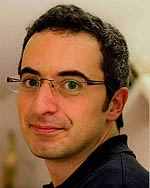 |
| University of Rochester physicist Roberto Covarelli contributed to this analysis. |
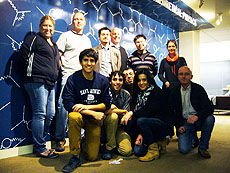 |
| These people helped organize and support the recent U.S. CMS Phase I upgrade workshop at Caltech. Top, from left: Lupe Llamas, Jason Trevor, Jean-Roch Vliman, Harvey Newman, Si Xie, Marelene Fouché. Bottom row, from left: Javier Duarte, Samir Curry, Artur Apresyan, Maria Spiropulu (workshop organizer), Dorian Kcira. Not pictured: Cristian Peña, Alex Mott, Ann Wang. |
|
|





